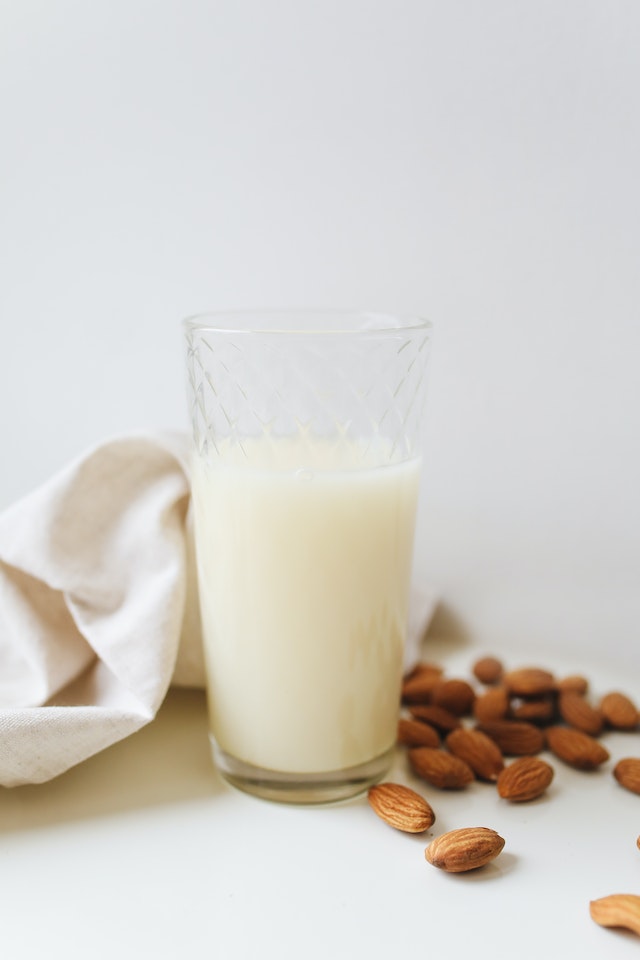The Ultimate Guide to Plant-Based Milk Alternatives

Plant-based milk alternatives have become increasingly popular in recent times. With people becoming more health-conscious and environmentally aware, plant-based milk has emerged as a healthier and more sustainable alternative to dairy milk. Not only are they packed with nutrients, but these milk alternatives come in a variety of flavours and can also be used in a variety of recipes.
In this comprehensive guide, we will take a closer look at the benefits of plant-based milk and provide information on the most popular types of plant-based milk alternatives currently available. We will also explore the differences between plant-based and dairy milk, and discuss the nutritional value, taste and texture, uses, and recipes for each type of plant-based milk.
Benefits of Plant-Based Milk Alternatives

Plant-based milk alternatives are derived from plants like soy, almonds, coconuts, and oats amongst others, making them a healthy alternative to dairy milk. Unlike dairy milk, which is rich in saturated fat, plant-based milk is low in saturated fat, cholesterol-free, and rich in vitamins and minerals.
Moreover, the production of plant-based milk is more sustainable and eco-friendly than that of dairy milk. It requires less water and emits fewer carbon emissions, making it a better choice for the environment.
Popular Plant-Based Milk Alternatives and Their Nutrition Benefits
1. Soy Milk
Soy milk is made from soybeans, making it high in protein and low in saturated fat. It is also a good source of calcium, vitamin D, and vitamin B12.
2. Almond Milk
Almond milk is a low-calorie option that is lactose-free and rich in vitamin E. However, it is low in protein and calcium.
3. Pea Milk
Pea milk is becoming increasingly popular due to its high protein content (about 8 grams per cup) and low sugar content. It is also rich in calcium, vitamin D, and iron.
4. Oat Milk
Oat milk is a great source of fibre, low in fat, and high in vitamin D and calcium. It is also an excellent option for individuals who are lactose intolerant.
5. Coconut Milk
Coconut milk is creamy and delicious and is great for adding flavour to curries and soups. It is also high in saturated fat and calories, so it should be consumed in moderation.
6. Rice Milk
Rice milk is lactose-free and low in fat, making it an excellent alternative to dairy milk for individuals who are lactose intolerant. However, it is low in protein and calcium.
7. Cashew Milk
Cashew milk is creamy, nutty, and slightly sweet. It is high in magnesium, calcium, vitamin K, and fat, so it should be consumed in moderation.
8. Hemp Milk
Hemp milk is rich in omega-3 and omega-6 fatty acids, making it a great option for people with heart disease. It is also high in calcium and vitamin D and is low in sugar.
Differences and Similarities between Plant-Based Milk and Dairy Milk

Plant-based milk and dairy milk have different nutrient profiles, tastes, and textures. However, they are both excellent sources of essential nutrients like protein, calcium, vitamin D, and vitamin B12.
Plant-based milk is generally lower in calories, fat, and cholesterol than dairy milk, making it a healthier option for individuals who are trying to lose weight or maintain a healthy weight.
In terms of taste and texture, plant-based milk has a unique flavour that may take some time to get used to. Additionally, the texture of plant-based milk is different from that of dairy milk, meaning it may not be an ideal replacement for certain recipes.
Potential Health Benefits of Drinking Plant-Based Milk
In addition to being a great alternative to dairy milk, plant-based milk has several health benefits, including a reduced risk for certain diseases, nutritional benefits, and decreased inflammation.
Choosing the Best Plant-Based Milk for Your Needs
Choosing the right plant-based milk for your needs can be challenging. Taste, nutritional needs, and dietary needs and restrictions are factors that should be considered.
For individuals with dietary restrictions or special needs, some plant-based milk alternatives are fortified with essential nutrients like calcium and vitamin D. You should also pay attention to the nutritional labels on plant-based milk and choose varieties that are low in sugar, fat, and calories.

How to Make DIY Plant-Based Milk Alternatives
Making your plant-based milk is a great way to save money while enjoying the health benefits of plant-based milk. There are several DIY recipes for various types of milk, including soy milk, almond milk, and oat milk. These recipes are easy to follow and only require a few ingredients.
In conclusion, plant-based milk alternatives are the way to go for individuals who are looking to lead a more sustainable and healthy lifestyle. While the variety of plant-based milk can be overwhelming, making informed choices about the milk you consume can have a significant impact on your health

